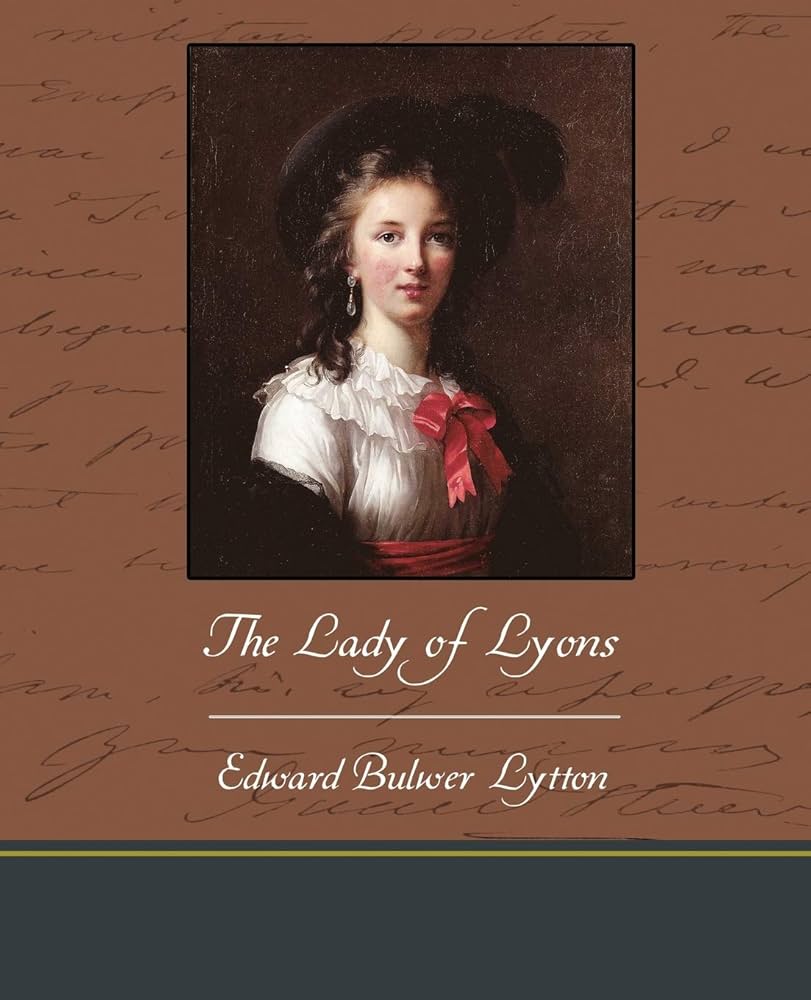Scene IX — The Lady of Lyons
byScene IX opens within the richly decorated home of M. Deschappelles, a place where elegance is both visual and strategic. Pauline, the young woman at the center, lounges amid flowers and handwritten notes—tokens of admiration that affirm her social standing. Her maid, Marian, attends quietly, while Madame Deschappelles surveys the setting like a general inspecting her battleground. Each detail in the room—the scented bouquets, the silk cushions, the curated calm—serves a purpose beyond comfort. It reflects Pauline’s value in a world where beauty is currency, and marriage is a transaction dressed as romance. Pauline’s musings on her anonymous admirer seem light, but they reveal a deeper curiosity, one tied to her longing for something more than what is expected. Her charm lies not only in appearance but also in a restless desire for meaningful connection.
Monsieur Beauseant’s entrance alters the mood with practiced civility masking deeper intent. Wealthy but lacking nobility, he sees Pauline as a means of softening the blow of his own social limitations. Yet even as he prepares to offer a proposal, he privately laments the sacrifice he believes he is making—marrying into a merchant’s family instead of true aristocracy. His offer to Pauline, though wrapped in polite words, carries the stench of condescension. He believes he brings elevation, not affection. Pauline’s refusal is swift and sharp, a mirror to his presumption. Her rejection isn’t merely emotional—it is principled. She will not barter her future for the illusion of love paired with superiority.
Madame Deschappelles, though initially polite, reveals her priorities clearly in private conversation. She respects Beauseant’s wealth but craves a match with true noble blood. Her vision for Pauline’s future is steeped in post-revolutionary contradiction: publicly accepting equality while privately clinging to status as power. When she instructs her daughter to deliver a refusal with “proper condescension,” it’s not out of cruelty but strategy. Pauline is being taught to reject without closing doors, to insult without dishonor. Every gesture is part of a larger game where appearances matter more than emotion. Beauseant is dismissed, but not without layers of performance on both sides.
As he exits, his pride is bruised but not defeated. He masks his humiliation by turning inward, contemplating withdrawal from society into a colder existence—one ruled by intellect, not romance. His pain fuels the motivations seen in later chapters, where wounded pride evolves into something sharper. Pauline, meanwhile, finds brief comfort in her mother’s approval. But beneath her composed exterior, a seed of restlessness grows. She has seen the cost of polite rejection and now begins to sense the weight of social expectation. Beauty has bought her power, but that power comes with chains—ones made not of iron, but of silk and etiquette.
This scene lays the emotional and thematic groundwork for the entire play. The battle between social aspiration and genuine affection is clearly drawn. Pauline’s decision not to accept Beauseant’s offer is not merely a personal one—it is revolutionary in its own quiet way. It reflects a desire to love without calculation. Her mother’s instructions, though pragmatic, highlight the tension between freedom and conformity. Each character acts with purpose, but their goals diverge sharply. Beauseant seeks validation, Madame Deschappelles seeks position, and Pauline—still uncertain—seeks something real.
The richly layered dialogue offers a glimpse into how societal norms operate like invisible scripts. Everyone knows their role, even if they resent the lines. Beauseant leaves wounded, not by cruelty, but by the realization that money alone cannot buy affection. Pauline, graceful in rejection, still feels the invisible weight of having to play the part of the ideal daughter. Her sense of control is tested, even as she maintains it. The flowers, the poised answers, the curated disdain—they are all part of the performance. And behind that performance, a quiet yearning begins to build. A yearning that, soon enough, will lead her into a story she never expected.

